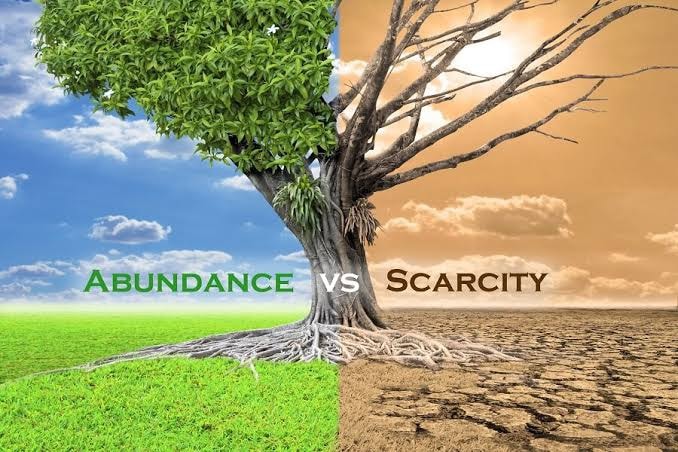The Power of Financial Wellness: Dr. Latifat’s Guide to Building Wealth With Confidence

Many people dream of financial freedom but struggle to take the first step.
Whether it’s self-doubt, societal expectations, or lack of knowledge, the journey to financial security often feels overwhelming.
But for Dr. Latifat Akintade, a practicing physician and financial educator, financial empowerment is not just about numbers—it’s about mindset, confidence, and taking control of your future.
In a recent episode of Khan Klinics, hosted by Dr. Amir Khan in collaboration with American Muslim Today (AMT), Dr. Latifat shared her insights on breaking free from financial anxiety, understanding wealth-building strategies, and creating a life of abundance.
“Money isn’t just about math—it’s about emotions, habits, and mindset,” she said. “The way we think about money determines how we handle it.”
Shifting the Mindset: From Scarcity to Abundance
One of the biggest obstacles to financial wellness is a scarcity mindset. Many people, even those earning six-figure salaries, still live with financial anxiety despite their substantial income.
Dr. Latifat explained that this fear often stems from deeply ingrained beliefs about money.
“We’ve been conditioned to believe that wealth is for other people,” Dr.Latifat said. “That we should be grateful for just getting by. But that’s not true. We all have the ability to build wealth—it starts with believing that we can.”
She encourages a shift in perspective, urging people to see money as a tool rather than a source of stress. When money is viewed as something to be feared or hoarded, it controls a person’s decisions. But when it is seen as a resource that can work for you, everything changes.
The Key to Financial Control: Knowing Your Numbers
While mindset is crucial, financial confidence also comes from understanding the basics. Many high earners still struggle because they don’t track their spending or invest wisely.“I’ve met doctors making $400,000 a year who still feel broke,” Dr. Latifat revealed.
“Not because they don’t make enough, but because they don’t know where their money is going.”
She emphasized the importance of knowing how much money is coming in, where it is going, and what a person’s net worth is—the difference between assets and liabilities.
“Your money should be working for you, not disappearing into thin air,” she said. “If you don’t know your numbers, you’re flying blind.”
Breaking Free From the Paycheck-to-Paycheck Cycle
Many professionals, particularly those in high-stress fields like medicine, fall into the trap of lifestyle inflation. As their income increases, so do their expenses, often leading to financial instability despite their high earnings.
Dr. Latifat believes this happens because people chase the appearance of wealth rather than true financial freedom.“Too many of us are trying to look rich instead of actually being rich,” she said. “You don’t build wealth by buying luxury items you can’t afford. You build wealth by making intentional financial decisions.”
She advises prioritizing savings and investments before spending on luxuries.
Automating finances ensures that savings and debt payments happen without effort, and living below one’s means—while still enjoying life—creates financial stability that lasts.
“The goal isn’t to deprive yourself,” Dr.Latifat added. “It’s to spend in a way that aligns with your long-term goals, not someone else’s expectations.”
Investing: The Pathway to Financial Freedom
For many, investing feels intimidating, reserved for those with wealth or advanced financial knowledge. But Dr. Latifat insists that anyone can learn to make their money grow.
“You don’t have to be an expert to invest—you just have to start,” she said. “Wealth isn’t built by saving alone. It’s built by putting your money to work.”
Many people overcomplicate investing and end up doing nothing. But keeping it simple is often the best approach. “You don’t need to pick stocks or day trade,” she said.
“Index funds, real estate, and long-term investments are powerful wealth builders. Start small, be consistent, and let time do the work.”
The Emotional Side of Money
While financial knowledge is essential, emotions play a huge role in how people manage money. Childhood experiences, cultural background, and personal fears shape financial habits, often leading to guilt, shame, or hesitation in making financial decisions.“Money is emotional,” Dr. Latifat explained.
“We attach so much meaning to it—fear, guilt, shame. But the truth is, money is just a tool. It doesn’t define your worth.”
She urges people to release their financial guilt and focus on learning. “Your past money mistakes don’t have to dictate your future,” she said. “Forgive yourself, educate yourself, and move forward with confidence.”
Women and Wealth: Taking Up Space in Financial Conversations
Women face unique challenges when it comes to wealth-building. The gender pay gap, societal expectations, and limited financial education often leave women feeling financially disempowered.
“For too long, women have been taught to budget but not build wealth,” she said. “We need to change that. Women deserve financial independence, and it starts with education and action.”
She encourages women to take control of their financial future by learning about investing, negotiating salaries, and building multiple income streams. “We need to stop playing small,” she said. “Financial power gives women choices, security, and the ability to design the life they want.”
The Path to Financial Peace
At the heart of Dr. Latifat’s message is a simple but powerful truth: financial freedom is not about having millions in the bank. It is about having options, confidence, and the ability to make choices that support a fulfilling life.
“Financial peace isn’t about never worrying about money again,” Dr.Latifat said. “It’s about knowing that whatever happens, you have the knowledge and the tools to handle it.”The journey to financial wellness does not require expertise—it simply requires a willingness to learn and take action. “Start where you are,” Dr.Latifat encouraged.
“Believe that wealth is possible for you. The best time to take control of your money is now.”For more insights on financial empowerment, subscribe to Khan Klinics and stay informed on strategies to build a secure, abundant future.





